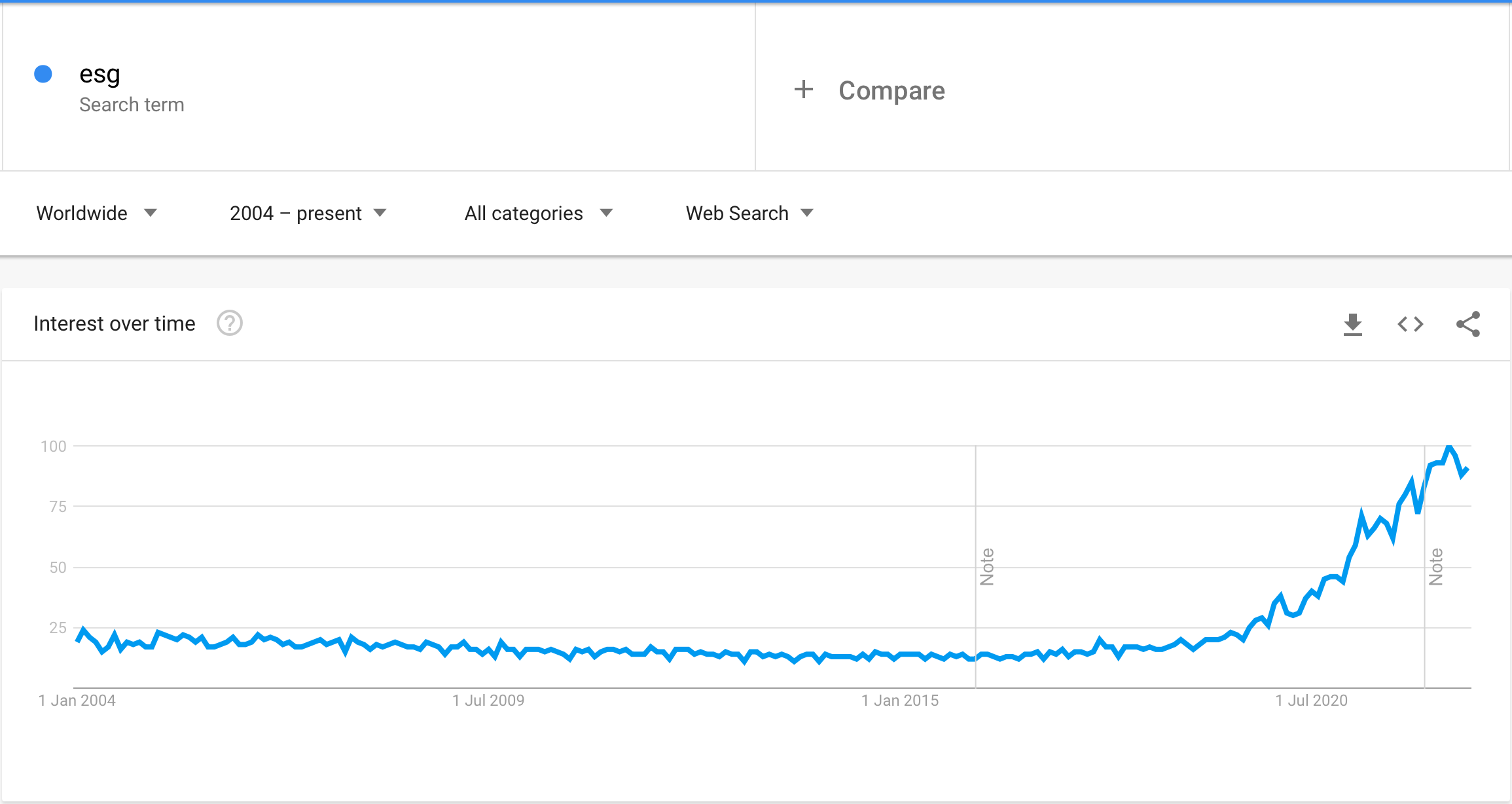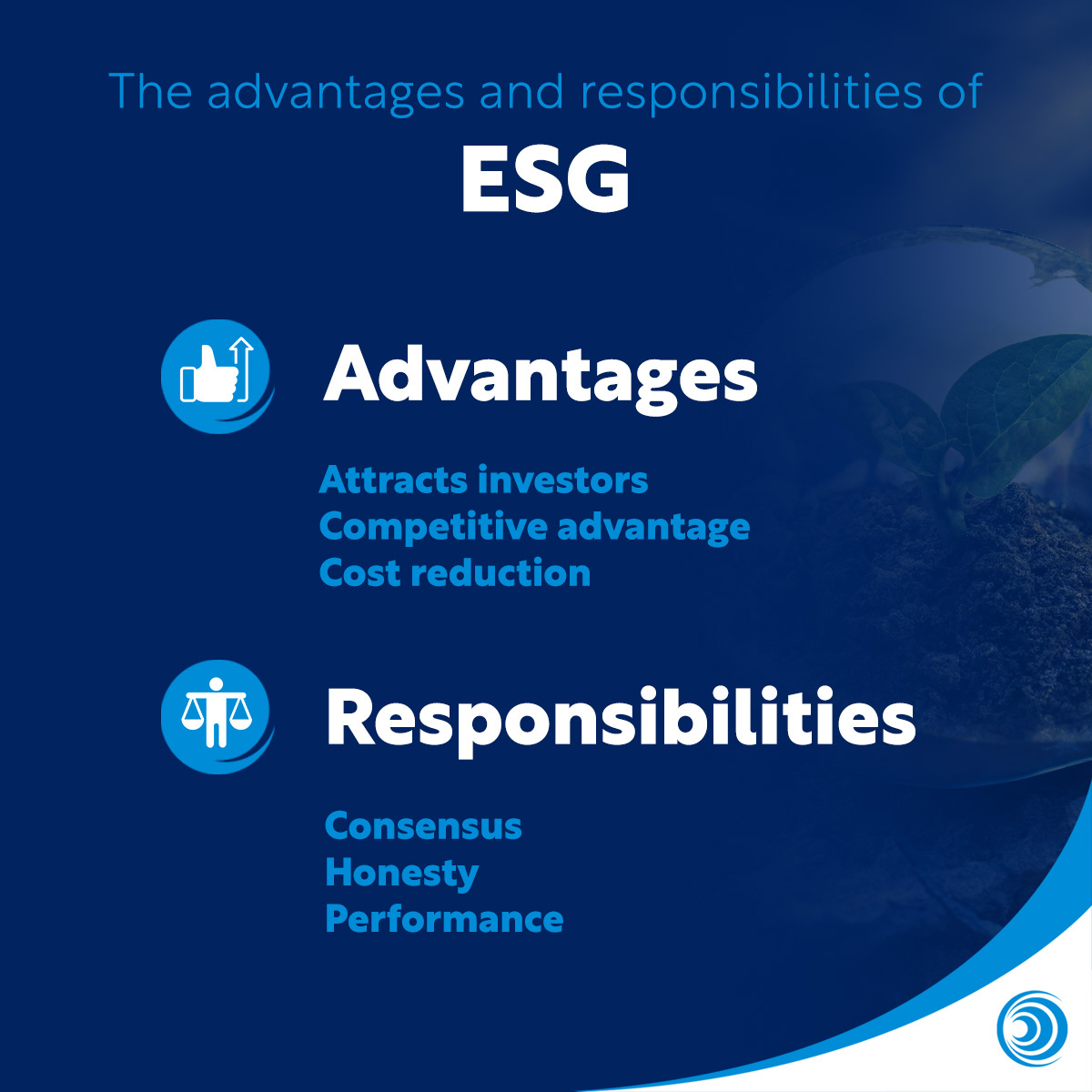Fintech ESG
October 31, 2022
ESG (Environmental, Social, and Governance) is one of the hot topics that’s been getting coverage across business sectors and it’s now getting attention in the fintech space.
In this blog, we will unpack what exactly ESG is and why it is important for fintechs. Like every strategy, it offers advantages but also comes with certain important responsibilities.
So, let’s get started… ESG VS CSRAlthough ESG and CSR are both concerned with the impact a business makes on society and the environment, they are not the same thing.
CSR (Corporate Social Responsibility), however, is a self-regulated business model where companies acknowledge and address the impact they have on wider society, the environment, and the economy.
While CSR is a business model created by the individual company, whereas ESG is a set of measurable criteria that investors use to assess whether a company is worth investing in, whilst supporting a more sustainable economy.
ESG is the newest of the two and many people are predicting that ESG will replace CSR.
ESG VS CSRAlthough ESG and CSR are both concerned with the impact a business makes on society and the environment, they are not the same thing.
CSR (Corporate Social Responsibility), however, is a self-regulated business model where companies acknowledge and address the impact they have on wider society, the environment, and the economy.
While CSR is a business model created by the individual company, whereas ESG is a set of measurable criteria that investors use to assess whether a company is worth investing in, whilst supporting a more sustainable economy.
ESG is the newest of the two and many people are predicting that ESG will replace CSR.
The environmental aspects include: Like most types of accreditations, creating and deploying an ESG policy comes with its advantages and a lot of time-consuming work.
Like most types of accreditations, creating and deploying an ESG policy comes with its advantages and a lot of time-consuming work.
What is ESG?
ESG (Environmental, Social, and Governance) is a framework that establishes criteria for a company’s behaviour. The standards encompass a company’s environmental impact and its relationships with employees, suppliers, customers, and the wider communities in which they operate. They also influence a company’s leadership and internal controls. ESG is also becoming an increasing area of focus for investors. Those who are environmentally and socially conscious are very likely to be looking for fintech businesses that clearly display credible ESG credentials. While the term ESG is relatively new to most people, it actually started as a CSR (Corporate Social Responsibility) initiative launched nearly 20 years ago by the United Nations. The term has gained popularity over the last couple of years due to increased awareness of global warming and other social issues. We can see a spike of interest in ESG from 2020 onwards on Google Trends. ESG VS CSRAlthough ESG and CSR are both concerned with the impact a business makes on society and the environment, they are not the same thing.
CSR (Corporate Social Responsibility), however, is a self-regulated business model where companies acknowledge and address the impact they have on wider society, the environment, and the economy.
While CSR is a business model created by the individual company, whereas ESG is a set of measurable criteria that investors use to assess whether a company is worth investing in, whilst supporting a more sustainable economy.
ESG is the newest of the two and many people are predicting that ESG will replace CSR.
ESG VS CSRAlthough ESG and CSR are both concerned with the impact a business makes on society and the environment, they are not the same thing.
CSR (Corporate Social Responsibility), however, is a self-regulated business model where companies acknowledge and address the impact they have on wider society, the environment, and the economy.
While CSR is a business model created by the individual company, whereas ESG is a set of measurable criteria that investors use to assess whether a company is worth investing in, whilst supporting a more sustainable economy.
ESG is the newest of the two and many people are predicting that ESG will replace CSR.Is ESG important in fintech?
The recent surge in popularity of ESG is beginning to influence the fintech and payments sector. Like many industries, financial services can play an important role in the achievement of ESG objectives – whether that be climate-related issues or net zero pledges. In recent years, fintechs, especially start-ups, often have a stated purpose that elevates them above simply making money. Those with a legitimate ESG focus could find they have an advantage in attracting investment capital that supports growth as well as their environmental and social agenda. The interest from venture capital in fintechs with ESG policies has surged in the last two years. A recent report from Mastercard showed that venture funds deployed 2.5 times more equity into ESG fintechs in 2020 compared to what they invested the year prior – rising from $700 million to $1.8 billion. This trend is expected to continue. Furthermore, fintechs can leverage ESG to attract customers who care about how businesses interact with people and the environment. This is important as 83% of millennial consumers want brands to align with their values. Customers as well as investors want businesses to do well commercially by doing right by society.How is ESG measured?
ESG is measured through an ESG score – a quantifiable measure of how your fintech business is performing in a range of environmental, social, and governance topics. It allows you to internally assess and analyse your company’s ESG performance. A third-party organisation, such as an agency or research and analyst firm, will evaluate your business. They will determine your ESG score based on your ESG performance and will typically compare you against your competitors. The MSCI ESG Indexes are an example of one way to measure a company’s performance. Your ESG score shows your board members and stakeholders their ESG liability, where business risks and opportunities lie, and how their business is performing against competitors and the wider sector.The elements of ESG
ESG is made up of three components – environmental, social, and governance. Let’s take a look at each one… Environmental
Environmental
The environmental aspects include:- Climate change
- Carbon emissions
- Pollution
- Deforestation
- Greenhouse gas emissions
Social
The social factors of ESG includes internal aspects such as employee safety, gender equality, and living wages. It also extends to a glocal level, reinforcing the importance of human rights, workers’ rights, and gender equality. When implementing the social element of your strategy, make sure to consider:- Customer success
- Security
- Gender and diversity inclusion
- Glocal community
- Mental health
Governance
Governance standards ensure that your company is transparent in its accounting methods, strives for integrity and diversity, and holds itself accountable. It’s all about your logistics and the process of running your business. Investors will take this element into serious consideration when deciding whether to invest in your business. They’ll consider the following:- Your board of directors
- Policies
- Hiring and onboarding process
- Compensation guidelines
The advantages and responsibilities of ESG
 Like most types of accreditations, creating and deploying an ESG policy comes with its advantages and a lot of time-consuming work.
Like most types of accreditations, creating and deploying an ESG policy comes with its advantages and a lot of time-consuming work.
